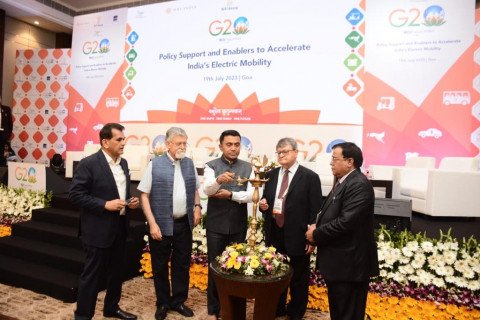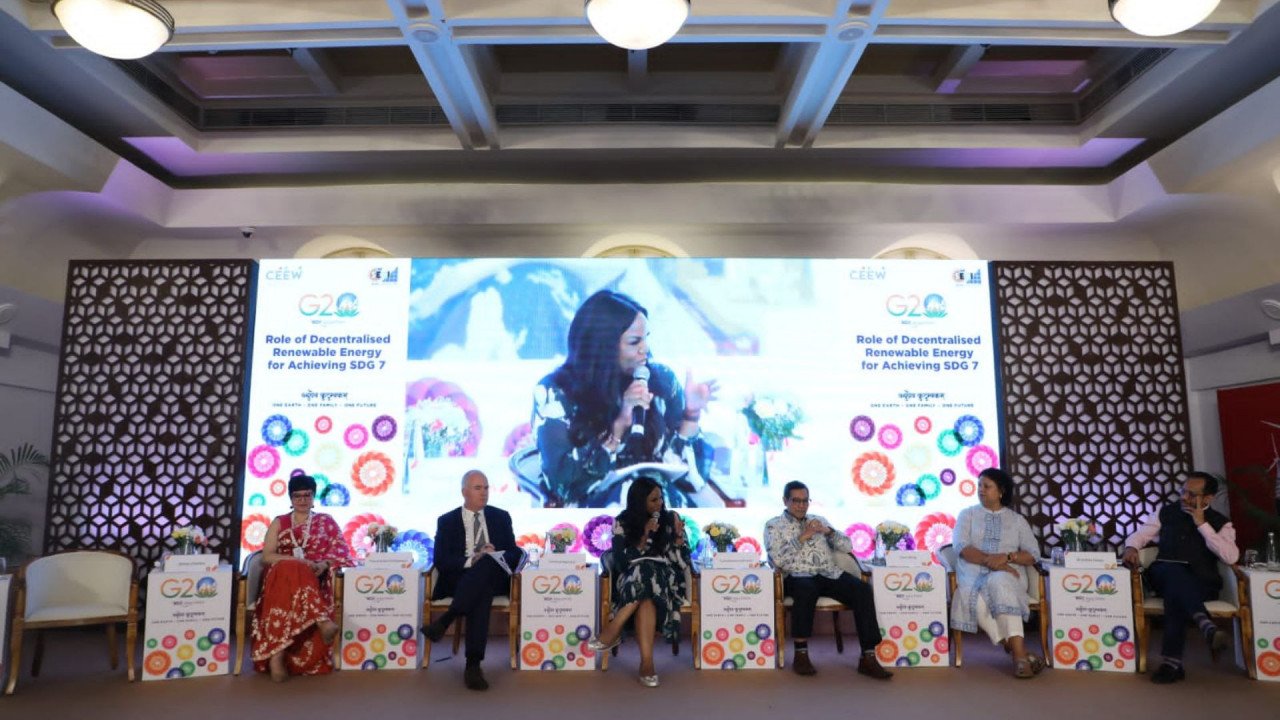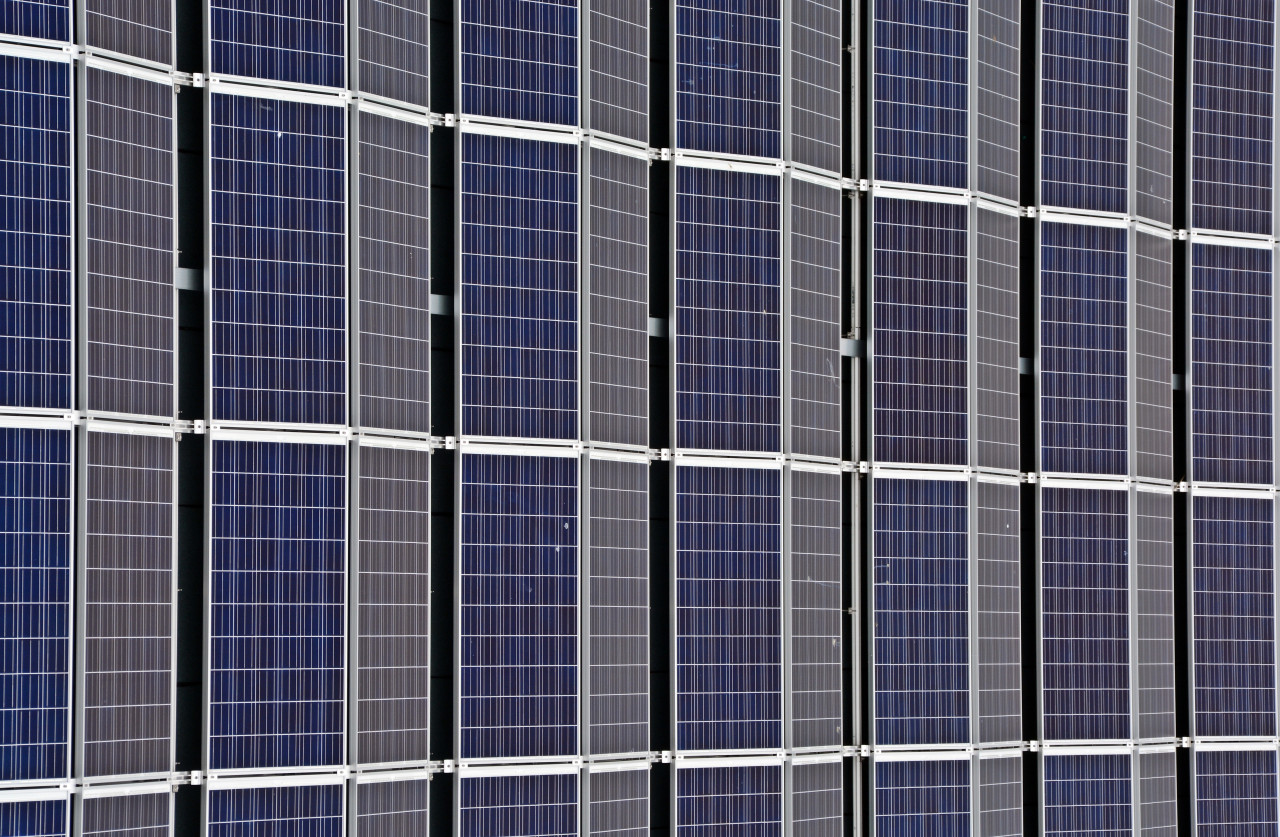G20 ETWG calls for Decentralized Renewable Energy (DRE) for sustainable future
The critical role of Decentralized Renewable Energy (DRE) for achieving Sustainable Development Goal 7 ensuring access to affordable, reliable, sustainable and modern energy for all was underlined at a side event as part of the fourth and final Energy Transitions Working Group meeting under India's G20 Presidency.
Hosted by the Union Ministry of New & Renewable Energy, with support from the Council on Energy, Environment and Water (CEEW) and the Solar Energy Corporation of India Limited (SECI), the session focused on the role of DRE in bridging the energy access gap — both as an alternative and as complementary to centralized grid systems.
In his inaugural address, Bhupinder Singh Bhalla, Secretary, Ministry of New and Renewable Energy (MNRE), Government of India, said, "Universal energy access has been the core facet of the global energy transition and the G20 is highlighting it. For this, Decentralized Renewable Energy (DRE) must be at the center of just and inclusive global energy transitions. But no one can act alone and countries need to cooperate here".
RELATED: World Bank approves ₹12,300 crore for India's low-carbon energy sector
With strong growth in renewable energy and faster adoption of DRE applications, India is at the forefront of the clean energy transition, he added. "We need long-term solutions to the world's energy needs. DRE can help provide energy access to not just households but also agriculture and micro businesses. To progress further, global cooperation in the form of cross-learning and exchange of best practices can be a powerful and transformative way of achieving success", he said.
Damilola Ogunbiyi, CEO and Special Representative of the UN Secretary-General for Sustainable Energy for All and Co-Chair of UN-Energy, in a panel where she stressed the importance of investments in DRE technologies.
"Globally, we have to see the lack of energy access as an emergency, but we don't. People see DRE as a few RE-powered lightbulbs, instead of how it can increase production and economic growth, and reduce our reliance on fossil fuels. We have the technologies and capacity we need, what we don't have is the right amount of financing to scale these business models," she observed.
In his address, Dinesh D. Jagdale, Joint Secretary, Ministry of New & Renewable Energy, said, "DRE is a key solution to meeting the rising energy needs. Their decentralized nature allows them to tap into locally available renewable energy resources and they can be customized to meet diverse energy needs for residential, institutional and productive uses".
In 2021, 179 million people gained access to electricity from DRE solutions — up from 35 million in 2012, he said. Jagdale also highlighted the Indian G20 Presidency's efforts to enable a supporting ecosystem for the scale-up of DRE integration in the member nations.
The event saw the launch of a report titled 'Compendium of DRE Good Practices for SDG7' by Council on Energy, Environment and Water (CEEW). CEEW's CEO Dr. Arunabha Ghosh, and Abhishek Jain, Fellow and Director - Powering Livelihoods with others, who together launched the report, looked at 120+ DRE cases from across the globe to create a guide for public and private sector leaders to mainstream DRE for SDGs.
The report recommends focusing on policies with a long-term vision to provide market certainty, engaging communities actively, ensuring accessible and affordable financing, and including cross-country partnerships.
Speaking at the event, R. P. Gupta, Chairman & Managing Director, SECI, said, "SDG 7 mandates energy access to all. But it has to be affordable first to be accessible. DRE is useful for areas that are otherwise inaccessible to the grid or have a dispersed population, but the main challenge is its cost. Here, experiences of other countries will help us arrive at a solution."
The G20 side-event also fostered discussions on fast-tracking DRE deployment to achieve SDG 7. Distinguished users of DRE technologies in India such as Kuni Dehuri, a user of a solar silk-reeling machine, Jalindar Machindra Rout, a user of biomass-based cold storage, and Toshima Dahariya, a staff nurse at Chhattisgarh's solarised primary health centre, registered their participation.
At the current pace of progress, IEA estimates that 660 million people in the Global South will still lack electricity access by 2030 — the year to achieve SDGs. DRE technologies leverage locally-available renewable energy resources to meet diverse energy needs for residential, institutional and productive uses, the speakers at the session agreed.




















